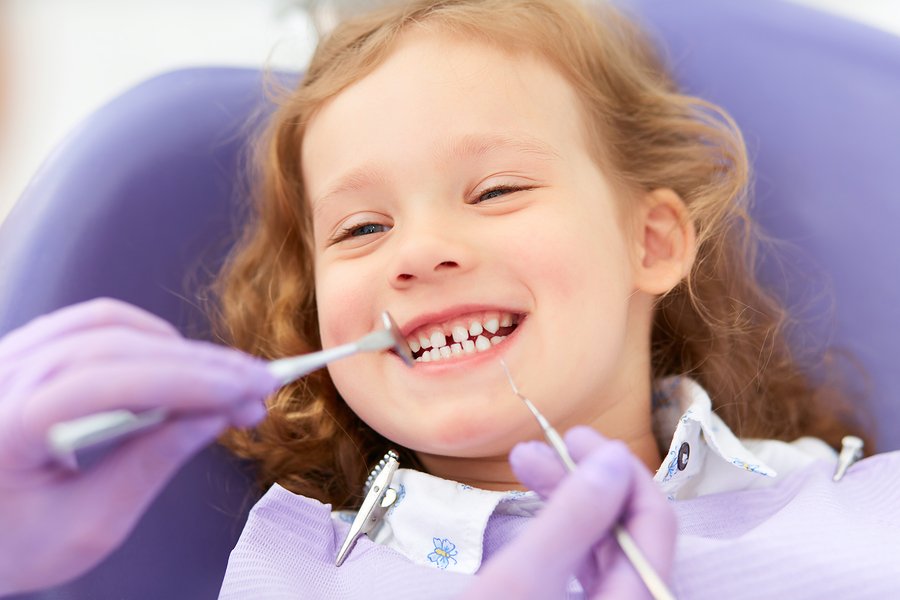Children require routine dental examinations to ensure proper development and good oral health. That said, it’s not uncommon for kids to have a fear of the dentist, especially if they’ve never been before. Here are some practical ways for relieving dentist anxiety in children, so you can ensure a more relaxed experience.
1. Start while they are young
The American Academy of Pediatric Dentistry recommends that a child see a dentist when his or her very first tooth erupts, or no later than one year of age. This allows dentists to make sure everything is developing normally, while helping a child become accustomed to routine dental visits.
2. Be a role model
Ask your dentist if you can let your child watch, while you get an examination or cleaning. However, if you tend to feel anxious at the dentist yourself, this is something you should avoid, since your child may pick up on your anxiety.
3. Read about the dentist
There are a number of great children’s books that can help your child become more comfortable with the idea of visiting the dentist. You can do an internet search or choose from some of our favorites.
4. Watch your language
Avoid using words, such as “shot,” “pain” or “hurt,” when talking about the dentist. Instead, you can tell your young child that the dentist is looking for “sugar bugs” or simply counting teeth. Whatever you do, don’t use the prospect of painful dental visits to try to motivate good brushing habits.
5. Role play
Try having your child conduct a pretend dental visit, using a stuffed animal as a patient. You or your child can play the part of dentist.
6. Don’t try to make things perfect
Remember that it is natural for children to worry about new experiences. If your child demonstrates some anxiety, try to remain relaxed, and remember that pediatric dentists are used to dealing with fear and fussiness.
7. Don’t use bribes
It may be tempting to offer a reward, such as a new toy or lollipop, for good behavior at the dentist. In reality, however, this will serve to reinforce the idea that something bad is going to happen at each dental visit.
8. Don’t give too much information
Avoid going into detail about what the child should expect at the dentist. You should also refrain from telling your child about an unpleasant experience that you may have had while visiting the dentist.
9. Tour the dental office
See if you can set up a tour before you schedule an actual pediatric dental visit. This will give your child a chance to meet his or her dentist and see that the environment is not nearly as scary as what he or she may have been imagining.
10. Bring a comfort item
A favorite toy, stuffed animal or book can help relax your child. You should also make sure that your child is wearing comfortable clothes and has eaten, so you won’t have to worry about moodiness or hunger pains during an appointment.



 Previous Article
Previous Article